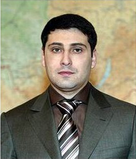The Public-Private Partnership Initiative will replace the competition with a thirsty public funding. The pioneer was a large IT project.

Last summer, a number of amendments to the law on concessions were adopted, which, according to the creators' plan, should simplify state financing of private initiatives, primarily in the regions and for medium and small investors. While we were all resting, time inevitably moved forward, and on May 1, a new procedure for concluding concession agreements entered into force: now investors themselves can take the initiative of a public-private project (PPP) and start the project without competition. It is a little more detailed about the mechanism of action, problems, foreign experience and even about the first swallow - a large IT project that has already taken advantage of this law, under the cut.
First about the mechanism
')
The financing mechanism works as follows: the investor prepares a proposal on a special form and sends an application for a draft concession agreement. Officials are given 30 days to review the project and make a decision. During this time, they must determine whether the project is needed by the state and whether it has the desire and resources to support it. Despite the fact that the competition is not mandatory, other investors still have the opportunity to compete for the project.
The mechanism that must ensure competition works as follows:
- If the project is approved on the site torgi.gov.ru information should be posted on the content of the project and the conditions for its implementation.
- If in 45 days there are no others willing to compete, an agreement will be concluded with the project initiator.
- If potential competitors are drawn during this time, a two-stage competition will be held in accordance with the requirements of the law on concessions. True, competitors should have not only a desire, but also at least a guarantee letter from the bank, confirming the possibility of financing at least five percent of the capital costs of the project.
Underwater rocks
According to the Ministry of Economic Development, the new private initiative mechanism will allow launching more concessions - first of all, medium and small projects at the regional level.
However, the preparation of the project for consideration will require a huge amount of paper work involving very narrow-profile and expensive specialists. Medium, and even smaller companies, this work will be done uneasy and expensive. On the other hand, it will be practically unrealistic to analyze, for example, a complex IT project in 30 days.
Foreign experience
In many foreign countries there are already mechanisms for encouraging private initiative, they can be divided into the following:
- Swiss system. Swiss people are strict, so the competition is obligatory and no one has any preferences on it, including the initiator himself.
- Bonus system. Competition is required, but the initiator has an advantage. A competitor wins only if he can lower the price more than a certain threshold value. Often 5% are taken for it.
- Hybrid system Competition is required. If the proposal of the initiator is more expensive than the best less than 5 percent, then he wins. If at 5-20, then a repeated competition is held. If more than 20, then the competitor wins.
- Manual mode. The authorized body itself decides whether to hold a competition, and for each case separately.
The first sign was a breakthrough IT project in every sense !

It is difficult to say whether the initiative will work to stimulate private activity in the regions, but investors interested in large projects at the federal level have already appreciated the opportunities it offers, on the merit. Moreover, but they did not have time to go through the holidays, and the first project within the framework of this law is already awaiting investments. Amazing efficiency in the implementation of the economic block of laws from our thoughts!
It is particularly gratifying that the project in the field of the IT-sphere itself and electronic equipment by the
We are talking about charging for travel on federal highways with the help of a structure called RTITS. For a start, only with heavy vehicles. I am sure that the project has great prospects and its creators will not be limited to just trucks. After all, in the future, it was decided to use it not just to collect payment, but also to control the movement of vehicles along federal highways. Personal motor transport is probably the only thing that can still move around our country almost uncontrollably. Tickets for airplanes, trains, and even long-distance bus routes have long been sold on passports. I have no doubt that our businessmen will not miss the opportunity to develop control over the movement of roads and personal vehicles within the framework of the project development by combining business with pleasure - state control, personal benefits and payment of every kilometer of the road by the population, of
The idea and lobbying in the highest circles of this project belongs to Mr. Chemezov, the president of Rostec. Initially, RTITS itself was owned by the state corporation Rostec (50.01%) and RT Invest, 25.01% of which is owned by the same Rostec. Initially, the government planned to select an operator at the competition, in which consortia of investors with the experience of participating in similar projects abroad were to participate, but Chemezov’s authority forced the government to back down. There was only one minor problem on the way to the project implementation - the law required competition.

In order to withdraw this project from the competition, our esteemed initiators decided to become the pioneers of the application of the new Law on Private Initiative and wait for May. Well, in order for the initiative to become truly private, Rostec
Source: https://habr.com/ru/post/290274/
All Articles